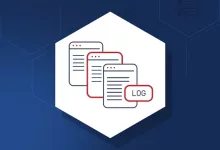Achieving Data Purity: The Importance of Data Cleansing in Business Operations

Can you run a company without data?
And we’re not talking about solid, clean, and meaningful data.
That is the secret behind the success of many big organizations.
In today’s data-driven world, the more accurate and reliable your data, the more opportunities you have in this market.
Although the digital era made it easy for us to accumulate as much data as we want, it’s our job to clean it for successful business operations.
Data purity ensures informed decision-making, enhanced customer satisfaction, reduced costs, and more.
Learn the importance of data cleanliness and how to achieve it in your organization.
The importance of data cleansing in business operations
- Ensuring the accuracy and reliability of data
Data is the backbone of business operations and influences various aspects, including strategic planning, marketing, finance, and supply chain management.
However, relying on inaccurate or unreliable data can lead to disastrous consequences. Businesses perform data cleaning practices to weed out errors such as duplicate records, incomplete information, and outdated data to ensure the accuracy and reliability of the information they use for decision-making.
- Improving efficiency and productivity
If data management is inefficient, it wastes the time and resources of the company. When employees spend valuable hours validating and correcting erroneous data, it hampers their ability to focus on critical tasks.
Data cleansing is necessary to streamline operations by eliminating inaccuracies, reducing data handling time, and enabling employees to concentrate on their core responsibilities.
- Enhancing customer satisfaction through personalized interactions
Customer data is one of the most valuable assets a business can possess. To deliver exceptional customer experiences, companies must have accurate and up-to-date customer information.
Regularly refining and updating the data ensures reliability and consistency, which enables businesses to personalize interactions, anticipate needs, and provide tailored solutions.
- Cost savings and resource optimization
Poor data quality results in financial losses due to billing errors, ineffective marketing campaigns, and poor inventory management.
By identifying and rectifying data inaccuracies, businesses can save operational inefficiencies and misinformed decision-making costs, leading to better resource optimization and increased profitability.
- Compliance and risk management
In certain industries, compliance with data protection regulations is mandatory.
Data cleansing also plays a crucial role in compliance with legal and regulatory requirements.
Businesses that handle sensitive customer information must be especially vigilant about data purity to protect their customers’ privacy and avoid potential penalties or reputational damage resulting from data breaches or non-compliance.
The impact of data purity on business functions
Understanding and satisfying customer needs are very important for businesses. Clean data is required for making interactions personalized to enhance customer experience and foster loyalty. It also facilitates customer service and support for better issue resolution and improved customer satisfaction.
Furthermore, businesses must require precise data to avoid costly mistakes in financial processes such as billing and invoicing. Clean data reduces the likelihood of disputes and delayed payments by ensuring that invoices are correct. In addition, accurate data supports effective inventory and supply chain management, helps minimize stockouts and excess inventory, and optimizes costs.
Strategies and best practices for data cleansing
After understanding what is data cleansing? What is its importance in business operations? And its impact on business functions, we’re now going to learn the strategies and best practices for data cleansing.
- Data cleansing tools and solutions
A wide range of data cleansing tools and software are available to assist businesses in automating the data cleaning process. These tools can identify and rectify errors, standardize data formats, and remove duplicate records to make data cleansing more efficient and effective.
- Data quality assessment and metrics
Establish data quality assessment metrics to measure and monitor data purity. By tracking data quality over time, you can identify trends and areas that require improvement to take proactive measures to maintain data integrity.
- Data governance and data stewardship
Implementing robust data governance policies and appointing data stewards also helps ensure accountability for data quality. Data stewards oversee data cleansing processes, set data quality standards, and enforce best practices within the organization.
- Establishing data cleansing routines
Data cleansing should be an ongoing and regular process rather than a one-time event. Create routines for data cleansing so that data remains clean and reliable.
Data cleansing for data integration
Integrating data from different sources can be challenging, particularly when dealing with dirty data.
Inconsistent formats and values hinder data integration efforts and make obtaining a comprehensive view of the organization’s operations difficult. Data cleansing is essential for harmonizing data and enabling successful integration.
Clean data facilitates smooth integration for businesses to derive valuable insights from consolidated information. Integrated, accurate data supports comprehensive reporting, analysis, and strategic planning, empowering businesses to make well-informed decisions.
Data cleansing for reporting
Reliable reporting is vital for management, stakeholders, and investors to accurately understand the organization’s performance. Clean data guarantees that reports are accurate, consistent, and trustworthy for informed decision-making and builds trust in the organization’s data-driven approach.
Read Also: How to Select the Right Multicloud Platform for Your Business?
Maintaining brand reputation through data purity
Customers expect businesses to handle their data responsibly and protect their privacy. Data breaches or misuse of personal information can severely damage a company’s brand reputation. This could be the reason for the instant loss of trust and credibility.
Moreover, clean data ensure that customer interactions are based on accurate information, minimizing the possibility of errors or misunderstandings that could result in negative customer experiences or public statements.
Read Also: Amazon is Changing its Return Policy to Cut Costs
Conclusion
Data purity is a critical factor in the success of modern businesses.
You must prioritize data cleansing to achieve accurate and reliable data to make informed decisions, improve efficiency, enhance customer satisfaction, save costs, and reduce legal risks.
It would be wise to invest in good data cleansing solutions, data governance, and regular data cleansing routines to maintain data purity.
Not only will it give you a competitive edge, but it will also build a solid reputation among your customers





